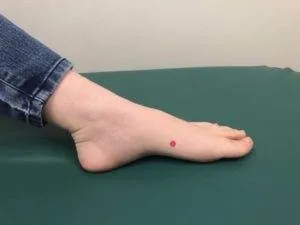-
 Art of Wellness Acupuncture & Traditional Chinese Medicine (TCM)11704 Wilshire Blvd, Suite 295, Los Angeles, CA, 90025
Art of Wellness Acupuncture & Traditional Chinese Medicine (TCM)11704 Wilshire Blvd, Suite 295, Los Angeles, CA, 90025
myartofwellness@gmail.com310-451-5522 Office Hours
MonClosedTue7:30 am --4 pmWed7:30 am --4 pmThu7:30 am -- 4 pmFri7:30 am -- 4 pmSat7:30 am -- 4 pmSunClosedOur office opens from Tuesdays to Saturdays 7:30 am to 4 pm, will be closed on Memorial day, Independent day, Labor day, Thanksgiving day, Christmas and New year.
-
Recent Posts
- Chinese New Year 2026: Year of the Horse
- Acupuncture and TCM Treatment for Perimenopause Symptoms
- How to Treat Insulin Resistance With Acupuncture and TCM
- How to Treat Metabolic Syndrome With Acupuncture and TCM
- How to Treat Syncope With Acupuncture and TCM
- How to Treat Thoracic Outlet Syndrome With Acupuncture and TCM
- How to Treat Dupuytren’s Contracture With Acupuncture and TCM
- How to Treat Nutcracker Syndrome With Acupuncture and TCM
- How to Treat Rosacea With Acupuncture and TCM
- How to Treat Perioral Dermatitis With Acupuncture and TCM
- Lymphatic Drainage With Acupuncture and TCM
- How to Treat Turf Toe With Acupuncture
- How to Treat Nerve Pain With Acupuncture and TCM
- How to Treat Watery Eyes With Acupuncture and TCM
- How to Treat Ovarian Cysts With Acupuncture and TCM
- How to Treat Dystonia With Acupuncture and TCM
- Sign up to receive news and updates and get my free report:“The Top 10 Reasons to Try Acupuncture”

November 2025 M T W T F S S 1 2 3 4 5 6 7 8 9 10 11 12 13 14 15 16 17 18 19 20 21 22 23 24 25 26 27 28 29 30
Diet
How to Treat Leiomyoma of the Uterus With Acupuncture and TCM
By Xiaomei Cai, L.Ac., Ph.D. & Qineng Tan, L.Ac., Ph.D.

Heavy bleeding, menstrual cramps, long periods? This could be a sign that a woman has leiomyoma of the uterus. Also known as uterine fibroids, leiomyomas are growths or benign tumors in or on the wall of the uterus. TCM and Acupuncture provide a natural alternative treatment that can help relieve uterine fibroid symptoms.
A leiomyoma, in general, is a growth in smooth muscle tissue. Leiomyomas can develop in any muscle tissue in the body, including that of the intestines, esophagus, and under the skin, but the most common type of leiomyoma occurs in the uterus.
Many women have uterine fibroids and aren’t aware of them. It is estimated that 60-80% of women will have leiomyomas of the uterus at some point during their reproductive years (“childbearing age” – anytime from menarche to menopause). Only about 30% of women report symptoms of fibroids to their doctor, though, because many women do not notice any signs of leiomyoma of the uterus. It is probably rare for someone to have a single fibroid tumor; usually, there are multiple tumors. Fibroids can be hereditary; if your mother had them, you may be more likely to have them, too.
Fibroid tumors can grow inside the uterus, or on the outside of the uterine walls. Sometimes they stay small, and in many cases they don’t cause problems. In some cases, though, they can grow large and press against other internal organs. Fibroids of any size can cause symptoms like painful or irregular periods, abdominal bloating, back pain, and bladder problems.
The primary sign that a woman has uterine fibroids is heavy bleeding during menstruation. In many cases, doctors will say that there is no need for medical intervention. Sometimes hormone suppressing medications are used to try to slow the growth of the tumors and reduce the period-related symptoms. In about 20% of cases, people opt for surgery to remove fibroids. Often the fibroids stop growing and may even shrink after menopause. It is extremely rare for leiomyomas of the uterus to become cancerous. However, uterine fibroids can cause women so much pain that it becomes disabling.
Fortunately, there is natural treatment for fibroids with TCM. Acupuncture and herbs are excellent modalities for helping all kinds of womens’ health issues related to the female reproductive organs. TCM doctors have been observing and treating growths in the pelvic area for many centuries. Acupuncture and herbs can help women with leiomyomas of the uterus, as well as related issues such as, PMS, endometriosis and ovarian cysts.
Top 10 Signs of Fibroids

In many–if not most–cases, women do not realize they have fibroids, either because they have no symptoms, or they don’t notice the signs as being something out of the ordinary. Some women will feel these symptoms of leiomyoma of the uterus:
- Heavy menstrual bleeding, heavy periods
- Longer periods
- Irregular menstruation, irregular periods, spotting
- Feeling pressure in the pelvic area, fullness in the belly
- Frequent urination (have to pee all the time)
- Urinary retention (having trouble peeing)
- Low back pain, hip pain
- Constipation
- Enlarged abdomen, belly bloated
- Pain during sex
The sort of heavy bleeding caused by fibroids can lead to anemia. Some fibroids can grow as large as a grapefruit, which clearly is going to cause distension in the abdominal area and put pressure on the other pelvic organs and blood vessels, potentially causing a lot of dysfunction and discomfort. But the size of a fibroid is not necessarily an indicator of whether it will cause painful periods or heavy bleeding. Even small leiomyoma of the uterus can cause pain and excessive bleeding. Emotional imbalance can also be a symptom of uterine fibroids. Leiomyomas of the uterus can cause difficulties during pregnancy, and in some cases, have a negative impact on fertility.
What Is the Treatment for Fibroids?
Sometimes a doctor may discover larger leiomyomas while doing a routine pelvic exam. When women seek medical treatment for fibroids, diagnostic imaging (ultrasound, CT, sonography, MRI, or x-rays) will be used to try to determine the location and size of the growths.
Current medical science does not provide a clear explanation for what causes leiomyomas to grow in the uterus; it is only understood that estrogens seem to contribute to their growth, so the first line of treatment usually focuses on trying to alter the levels of female hormones in an effort to slow the development of the fibroid tumors.
Hormone medications, oral contraceptives, and even hormone-releasing IUDs are often prescribed to help control the heavy periods (cause spotting or no periods). These drugs do not do anything to change the fibroids themselves, though, and obviously, they are not suitable solutions for women who have plans to become pregnant.
For women whose bleeding is so excessive that it becomes disabling, Lupron may be recommended. Lupron acts upon the pituitary gland to turn off estrogen production, which can essentially start early menopause. Many women experience menopausal symptoms like hot flashes and headaches while taking Lupron. It is usually prescribed for women who are planning on undergoing surgery, as it can temporarily reduce the size of the leiomyomas to make them easier to remove. It is not viable as a long-term treatment on its own, though; as soon as a woman stops taking the medication, the fibroids will grow back.
There are relatively non-invasive surgery techniques that are able to remove fibroids while preserving the uterus; this is called myomectomy, which can be performed via incision or laparoscopically. Uterine Artery Embolization (UAE) is a newer procedure that blocks blood flow to the leiomyomas by injecting particles into the arteries connected to them. Some women opt to have a hysterectomy, a major surgery to remove the entire uterus, to get rid of fibroids for good.
Unfortunately, many women think that painful periods and heavy bleeding during periods is normal. Heavy periods may be common, but they are not “normal” or necessary. Women do not have to suffer with terrible cramps and lose a lot of blood every month. TCM herbs and acupuncture offer a natural way to get relief from painful periods and reduce fibroids.
How Can Acupuncture Help Fibroids?

In TCM, we have a category of disorders that we classify as “Zheng Jia,” which mean “masses.” This umbrella concept covers all the womens’ health issues that stem from growths or tumors that affect the female reproductive system, including uterine fibroids, ovarian cysts/PCOS, endometriosis, and reproductive cancers.
According to TCM theory, Zheng Jia disorders arise from internal factors such as blood stasis,/phlegm (spleen deficiency), liver stagnation (fire), and cold uterus.
Top 3 Factors Causing Fibroids According to TCM:
- Blood stasis/Liver Stagnation – Qi (life force energy) helps blood to flow. If Qi is blocked, blood flow gets stuck. Good Qi flow relies strongly on the liver and the emotions related to it. People who tend to have negative PMS symptoms like irritability, breast tenderness, and cramping probably have compromised liver Qi due to long-term stress. Liver Qi stagnation leads to blood stasis, which contributes to the formation of the fibroid tumors. Presenting symptoms: irritability, breast tenderness, distended abdomen, strong emotions, heavy flow during period, bright or deep red color, possibly with clots, and some cramping. Bright red or deep red blood is an indication of liver fire.
- Cold uterus – Habits like always drinking cold beverages (especially during periods) and underdressing in cold environments can cause restricted flow of blood, which, over time, causes circulation issues and gradual development of tumors. Symptoms include: menstrual blood is darker red, cramping which improves with the application of heat (heating pad or hot water bottle) or after passing clots, feeling of being cold all the time, needing extra layers of clothing and blankets (yang deficiency).
- Phlegm/Spleen/Stomach Deficiency – This type of deficiency causes improper digestion of food, creating dampness and phlegm that builds up in the system and affects the blood flow, stagnation that causes the tumors to grow. Symptoms: indigestion, bloating, diarrhea, tendency to gain weight, lighter colored, watery period flow, maybe with some mucus.
When a TCM practitioner works with a patient with fibroids, she will not only choose acupoints and herbs to help shrink the growths themselves, but will also address the underlying factors that have led to the growth of the leiomyomas in the first place. With the right guidance and lifestyle modifications, the deeper stagnation can be resolved, which will help to reduce existing fibroids and prevent more from forming.
One study of Chinese Medicine herbs used to treat uterine fibroids in over 200 women showed a 72% reduction in bleeding, as well as over half of the patients reporting a reduction in back pain and abdominal pain. For over half of the patients in this study, imaging showed a reduction in size or even disappearance of the leiomyomas of the uterus.
Another study compared women receiving acupuncture and herbs versus patients treated with a combination of mifepristone, a steroid medication, and Chinese herbs. All of the women saw some benefits, but the ones who had acupuncture treatment saw an overall greater reduction in the volume of their fibroids.
One of the primary benefits of receiving regular acupuncture treatment is the prevention of blockages along the meridians and in the blood circulation. We believe that women who practice health maintenance with acupuncture are less likely to develop growths in the pelvis and to have better reproductive health and more comfortable periods overall. Acupuncture and herbs can help to manage the pain and bleeding caused by fibroids, offering an effective alternative to hormone medications or surgery.
Top 3 Tips for Fibroid Self-Care

Lifestyle and behaviors contribute to the formation of pelvic tumors. Knowing which habits may cause female health problems can help relieve painful periods.
- Manage stress – constant stress and anxiety have a profound effect on liver health, which in turn impacts the reproductive organs. Regular exercise, meditation practice, and prioritizing rest and sleep are keys to stress reduction. Don’t take on more projects and responsibilities than you feel you can handle. Ask for help when you are feeling overworked.
- Modify diet – avoid mucus-producing foods, especially deep-fried foods, dairy products, and red meat, which are harder for the body to process thoroughly. Undigested foods like this create mucus and stagnation. During the period, the pelvic area is vulnerable, and anything inappropriate can cause extra problems. Choose warm foods, ensure you do not have any indigestion. If you do, address it with acupuncture and herbal supplements.
- Stay away from cold especially during the period, a miscarriage, or post-partum. Anytime there is bleeding from the uterus, the uterus is open, and it is crucial to keep everything warm to allow proper blood flow.
Acupuncture Near Me for Uterine Fibroids
TCM has been used to treat all types of gynecological conditions since at least 1000 B.C. At Art of Wellness, we bring unique expertise to this area of women’s health care, combining over 30 years of experience in both traditional methods of treatment and partnering with the top womens’ medicine and fertility specialists in the Los Angeles area. Find relief from the pain of fibroids through integrative care for leiomyoma with acupuncture.
*This article is for education from the perspective of Traditional Chinese Medicine only. The education provided by this article is not approved by FDA to diagnose, prevent, treat and cure human diseases. It should not stop you from consulting with your physician for your medical conditions. Traditional Chinese Medicine is based on Qi, which is an invisible force that usually cannot be observed by modern science. Because science focuses on testing ideas about the natural world with evidence obtained through observation, these aspects of acupuncture can’t be studied by science. Therefore acupuncture and Chinese herbs are often not supported by double-blind, randomized trials, and they are considered alternative medicine therapies in the United States.
How to Treat Hives With Acupuncture and TCM
By Qineng Tan, L.Ac., Ph.D. & Xiaomei Cai, L.Ac., Ph.D.
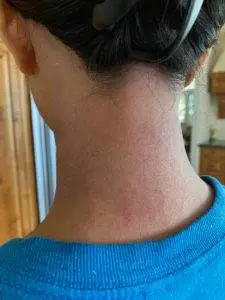
Skin rash with itchy welts or red bumps that seem to appear suddenly, then move to another part of the body, or go away? Hives, also known as urticaria, are caused by a type of allergic reaction that creates a temporary rash or swelling of the skin. TCM and acupuncture have been used for centuries to help relieve hives caused by allergies.
Hives are fairly common, occurring in about 20% of people of all ages. An acute, or short-lived, case of hives may occur because of being exposed to some unusual, new chemical or natural irritant in a person’s environment, maybe in some product, or some pollen or bug. These usually go away quickly, and it may be fairly obvious what it was that caused the outbreak of hives. However, sometimes people develop chronic idiopathic urticaria (CIU), in which a person may break out in hives often on an ongoing basis and have no idea why it keeps happening.
Allergies can manifest in many ways: sometimes causing sneezing, watery eyes, or skin problems. Hives are another way that an allergic reaction can show up. Hives, or urticaria, are distinguishable from other types of skin rash, like dermatitis eczema, or shingles rash, because, unlike other rashes, they do not form fluid-filled bumps or cause dryness, scaliness, or cracking of the skin. Rather, hives are raised welts on the skin that appear red, but then turn white when you press on them; this is known as “blanching.” Hives can look like small, narrow lines, or big, patchy blotches.
Urticaria is related to, and sometimes confused with, angioedema, which is a similar condition, in which deep layers of skin become swollen, often around the eyes and mouth, also due to irritation by some allergen. Angioderma can coexist with hives, and can be more dangerous than hives, if it causes tissues in the throat or tongue to become so swollen that the airway is blocked.
Hives often clear up on their own within a few days or weeks without any treatment. However, some people develop chronic hives, in which the hives rash keeps recurring for weeks or months, or longer. Chronic hives can be a uniquely painful and frustrating condition; never knowing when you might break out into a burning, itchy rash. Hives worse at night or hives worse after sleeping are common experiences for people who suffer from chronic urticaria. Breaking out in hives can make a person feel panic, making it very difficult to get on with daily tasks. Acupuncture treatment can help alleviate the burning and itching of acute hives or chronic hives, and help relieve the allergies, stress, and other underlying conditions that bring them on.

Top 10 Hives Causes or Triggers
In general, what causes hives most of the time is an allergic reaction to some external stimulus. Touching something, eating something, or inhaling something that you are allergic to can cause urticaria to break out on the skin, sometimes briefly, sometimes moving around from one area or the skin to another, or seeming to spread over the skin. Things that can cause hives include:
- Foods, especially those that are well-known allergens like nuts, shellfish, dairy, and eggs, but also fruits, especially citrus fruits
- Contact with certain plants
- Pollen in the environment
- Medications, including antibiotics, OTC pain relievers
- Latex
- Pet dander
- External stimuli from the climate – sun exposure, heat, cold
- Bacterial infections in the body, like strep throat or a UTI
- Viral infections in the body, like colds, hepatitis or mononucleosis (viral hives)
- Blood transfusions
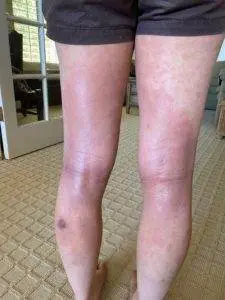
Insect bites or itchy rashes that cause you to scratch at your skin can also cause hives to appear in other areas. Simple pressure on the skin, from sitting or leaning on a patch of skin for a long time, can cause hives. Some people break out in hives when they are under a lot of pressure or emotional stress, even if they are not aware of having allergies or other underlying causes for hives. Sometimes this is called a “stress rash.”
Treatment for Hives
Hives are most commonly treated with antihistamines, which can help relieve itching. Many people experience some type of side effect from taking antihistamines, including: headache, drowsiness, fatigue, and hay fever type symptoms. Some people do get relief from a temporary hives rash after taking Benadryl or something similar. But for others, it may not help, and then doctors often prescribe a corticosteroid as an anti-inflammatory. If steroid treatment for hives does not help, immunosuppressants may be recommended. Depending on the root cause of the hives, these types of pharmacological solutions may or may not work to relieve hives. Acupuncture and TCM treatment focuses on solving the deeper problems that cause hives, without any negative side effects.
How Can Acupuncture Help Hives?

As we have seen, conventional western medicine mostly looks at hives in terms of allergies. But in order to resolve the hives, we have to look more closely at why a person has those allergies. Why are some people affected so strongly by certain foods or certain environmental conditions while other people are not affected at all? We have to consider a person’s constitutional health.
As we have discussed in other articles, in TCM the concept of Wei Qi refers to the body’s protective defenses, the action of which stems mainly from the lungs and the skin. Many types of illness are considered to be related to a weakness or breakdown in the Wei Qi that allows external pathogenic factors to enter the body and take hold. Wind is one such external pathogenic factor. Heat and cold are others. Viral and bacterial infections also find their way into the body when the Wei Qi energy is weakened.
6 Pathogenic Factors According to TCM:
- Wind
- Cold
- Summer Heat
- Dampness
- Dryness
- Fire
Hives come mostly from wind and heat. In TCM, urticaria is known as Feng Zhen Kuai, or “wind rash patch.” Wind describes the nature of urticaria rash in the sense that the hives welts come and go, as if blown about.
When people get hives, it is usually because of one of a few common factors.
- Yin deficiency/Dryness – If the body is too dry, when any allergens get in, there is not enough moisture in the body to wash them out of the system; this causes the breakout.
- Fire/Heat – If there is too much heat, fire, and inflammation in the body, when there is exposure to allergens, the body can’t take any more and will break out.
- Liver stagnation with Heat – When a person is under stress for a long time, it can exacerbate stagnation of Qi in the liver system, which over time causes heat to build up, then the body cannot process little irritations. The liver and kidneys have to do all the work to filter toxins out of the body, but when those organs are overstressed, the body will try to get rid of excess heat through the skin.
Usually, if a person is having chronic hives, it has a lot to do with their food and their habits around their exposure to the elements. For example, in the winter time, in order to be harmonious with the season, the body is meant to experience cold. But many people keep the heater on and keep their environment very warm all the time. This leads to dry air and can cause even people without any allergies to feel itchy. People also tend to take long, hot showers, which can destroy some of the skin’s natural protective layers and cause it to be raw and easily irritated.
In western thought, when a person has a reaction such as hives to certain foods (spicy foods, alcohol), it is thought of as an allergic reaction, but in Chinese medicine we see this as being the body’s reaction to too much heat. If a person already has a fiery constitution, or liver stagnation, and then there are external hot conditions, and hot foods coming in all at once, the internal heat can explode out, creating the burning rash on the skin.
Cupping can be very helpful for treating hives; it exfoliates the skin and helps to draw toxins out. This will help to cool down the hives outbreak. Then we go further with acupuncture and herbs to strengthen the lungs, the liver, and the Wei Qi.
A systematic review of clinical trials studying the use of TCM methods and acupuncture to treat hives, both as an alternative and an adjunct to medication treatment, concluded that acupuncture is a safe and effective way to reduce symptoms of hives or chronic urticaria. Chinese herbs are also well-known for helping to relieve hives.
Top 5 Tips for Hives Relief

How to get rid of hives for good will mean paying attention to what triggers the rash for each individual. To avoid this kind of allergic reaction hives, protect your Wei Qi with healthy habits. Prioritize rest and good nutrition to build up your immunity and protect your lungs and skin.
- Avoid a cold wind blowing on you, whether outside, or from a fan or air conditioner. Dress appropriately; always bring an extra layer so you don’t catch a chill or have a bright sun shining on your skin for a long time when you didn’t expect it.
- Avoid very hot showers, baths, saunas, etc.
- Engage in regular exercise to help boost your blood circulation; walking is always ideal. This will help to reduce stress, as will a meditation practice.
- Get plenty of rest. Good quality sleep is essential to help build up the Wei Qi.
- Avoid foods that are either too hot (spicy or fried, red meats) or too cold (raw foods). No alcohol or coffee. These triggering foods and beverages can really make the hives worse. Drink more water to eliminate the dryness in the body.
If a patient is having trouble figuring out what it is that is causing his or her hives breakouts, a TCM provider may be able to find the underlying reason behind the rash.
Acupuncture Near Me for Hives
People of all ages can receive acupuncture treatment for hives and allergies like hay fever. The doctors at Art of Wellness have been helping people get relief from allergies and itchy skin conditions for over three decades. We can provide help for children with hives with herbs and acupuncture. If you or someone you love is suffering from hives, please consider giving TCM and herbs a try.
*This article is for education from the perspective of Traditional Chinese Medicine only. The education provided by this article is not approved by FDA to diagnose, prevent, treat and cure human diseases. It should not stop you from consulting with your physician for your medical conditions. Traditional Chinese Medicine is based on Qi, which is an invisible force that usually cannot be observed by modern science. Because science focuses on testing ideas about the natural world with evidence obtained through observation, these aspects of acupuncture can’t be studied by science. Therefore acupuncture and Chinese herbs are often not supported by double-blind, randomized trials, and they are considered alternative medicine therapies in the United States.
Chinese New Year 2021 Year of the Ox
By Qineng Tan, L.Ac., Ph.D. & Xiaomei Cai, L.Ac., Ph.D.
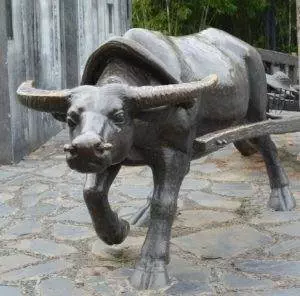
The Chinese New Year celebration will begin on February 12, 2021 this upcoming year. Throughout Asia, the start of the new year according to the lunar calendar is the most exuberant holiday, the time when families gather together to give gifts, eat special foods, honor long-held traditions, and show their love for one another. All around the world, the 2021 New Year holidays will look different, and many families will have to share their New Year greetings from afar. However, the new energy of the Metal Ox, according to Chinese Astrology, offers a way to view our situation with hope and purpose.
In Western astrology, your sun sign derives from the time of the year and place where you were born; whereas in Chinese Astrology, people who share an entire birth year also share a birth sign. The Chinese Astrological calendar runs through a twelve-year cycle.
The Ox is the second of the Chinese zodiac animals, following the Rat, who has been representative of 2020. (Looking back, we can see how the Rat’s frantic energy led to multiplying numbers, and tendencies to hoard.) Like this past year, ruled by the Metal Rat, the Ox is still influenced by the Metal element, which brings strength and steely resolve, but also rigidity, and a tendency to try to do things alone. The Ox, also known as the Cow, is all about hard work and persistence, so the Metal energy is complementary at a time when people, as individuals and as a global community, must work through intense difficulties with the ultimate diligence.
In TCM, the Metal element is considered to be connected in particular to the lungs and respiratory system. It cannot be overemphasized; top priority for the upcoming year must be taking care of your health, protecting and strengthening your Wei Qi (the Qi that helps prevent colds and flus), and getting plenty of rest. If you do not already have a regular practice of deep breathing and meditation in place, now is the time to begin.
Metal Ox, sometimes thought of as “Gold Ox,” or “Iron Ox,” is good at developing relationships, but does so with total, and sometimes brutal, honesty. She will demand truth and righteousness from others, too. In 2021, we have an opportunity to find new ways to build community even as we contemplate a world that feels more isolating than ever.
The metal Ox cannot be manipulated, but will charge straight ahead to tackle obstacles. Ox is ready to be tested; in fact, she relishes the chance to prove herself. On the other hand, Ox can be stubborn and unwilling to listen to alternative ideas that might call for a change of plans. Metal Ox is ready to put in the hard work, not because she seeks reward or accolades, but because without consistent effort, she knows nothing will get done or change. The overall energy of the Metal Cow is Yin, and associated with the cold months of Winter, when seeds and bulbs are buried underground, waiting and developing in quiet darkness.
Chinese Astrology, like Traditional Chinese Medicine, and Chinese philosophy in general, views the world through microcosm and macrocosm. That is, we see the entire universe represented in every living creature; and each individual, by creating harmony within, can help to create harmony in the universe as a whole. As we move into 2021, it feels especially necessary that we all take care of our bodies, our families, our communities, and by doing so, we extend that sense of taking care out to the whole world.
Top 3 Tips for Good Luck in the New Year

Are you an Ox? If so, this year is your “ben ming nian!” Literally translated as the “year of original destiny,” this is the term for when it is “your year;” in other words, the Zodiac sign matches that of the year you were born. It is generally believed that your ben ming nian can be a tumultuous year with a lot of ups and downs. People who want to ensure good luck during their Zodiac Year practice these habits for good fortune:
- Wearing Red – the color red is believed to chase away bad luck, so wearing even a little bit of red – red socks, red underwear – daily is advisable when it is your ben ming nian. However, there is one important point to remember; the red item must be given to you as a gift–not something you buy for yourself. So, now you know what to put on your holiday wish list if you’re an Ox: red accessories!
- Carry or Wear Jade – jade also has protective qualities, and is believed to help bring peace, harmony, and abundance to the wearer. It is common to see people always wearing a favorite pendant or bracelet made of jade.
- Avoid Facing “Tai Sui” – In Chinese Astrology, Tai Sui is a star that opposes Jupiter in the sky, and represents the “God of Age.” Some signs, including the ben ming nian, are in conflict with Tai Sui each year. Feng Shui principles give instructions as to how people who need to avoid “offending” Tai Sui can arrange their furniture so as not to cause unfortunate clashes.
Whatever your sign, the New Year is always a time to clean the house thoroughly, settle all accounts, and get organized so that the beginning of the year truly represents a fresh start.
Find Your Sign in Chinese Astrology
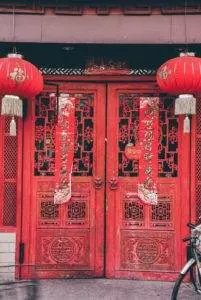
Because your Chinese sign is determined by the Lunar calendar, be sure to check the exact dates of your birth year. People born in January or February may belong to the former or later year.
- Ox 1937, 1949, 1961, 1973, 1985, 1997, 2009
- Tiger 1938, 1950, 1962, 1974, 1986, 1998, 2010
- Rabbit 1939, 1951, 1963, 1975, 1987, 1999, 2011
- Dragon 1940, 1952, 1964, 1976, 1988, 2000, 2012
- Snake 1941, 1953, 1965, 1977, 1989, 2001, 2013
- Horse 1942, 1954,1966, 1978, 1990, 2002, 2014
- Goat 1943, 1955, 1967, 1979, 1991, 2003, 2015
- Monkey 1944, 1956, 1968, 1980, 1992, 2004, 2016
- Rooster 1945, 1957, 1969, 1981, 1993, 2005, 2017
- Dog 1946, 1958, 1970, 1982, 1994, 2006, 2018
- Pig 1947, 1959, 1971, 1983, 1995, 2007, 2019
- Rat 1936, 1948, 1960, 1972, 1984, 1996, 2008
Seeds for the New Year Grow Into Conversations
At New Year’s parties–indeed, at any sort of gathering–you are bound to see a big bowl of unshelled sunflower seeds on the table. In China, people have been preparing seeds to be eaten as a shared snack for centuries. During the Yuan Dynasty (13th-14th century), people would stir-fry and eat melon seeds. Even though nowadays people almost always eat sunflower seeds instead, the common phrase for doing so in Chinese, 吃瓜, is still translated literally as “eating melon seeds,” or even simply “eating watermelon.” This phrase can also mean “gossiping,” because people love to nibble on the seeds while they chat with their friends and relatives.
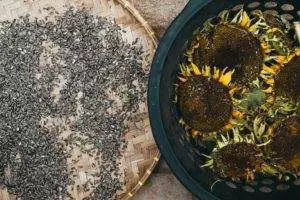
Traditionally, the seeds are cooked inside their shells, and the shells are left on, which helps them stay fresh longer (about six months), but it also means that they take longer to eat. This is why the habit naturally accompanies long, leisurely talks with friends and family. You can sit for hours, cracking the seed casings open with your teeth one by one, enjoying an activity that occupies your hands and mouth, without actually eating too many seeds.
According to TCM nutrition guidelines, sunflower seeds belong to the category of bitter foods, and are fairly neutral, in terms of yin and yang energies. Baking or frying seeds adds more heat energy, while boiling helps preserve the nutrients better. Sunflower seeds are high in fat, which is what makes them so tasty, so do be sure to enjoy them in moderation, with only a light sprinkling of salt, and lots of good, easy-going conversation!
Best Wishes From All of Us at Art of Wellness
There are many ways to wish friends and loved ones a Happy New Year in Chinese. This year, we want to say to all of our patients and friends: 祝财运亨通 Zhù cáiyùn hēngtōng! I want to wish you longevity and health!
*This article is for education from the perspective of Traditional Chinese Medicine only. The education provided by this article is not approved by FDA to diagnose, prevent, treat and cure human diseases. It should not stop you from consulting with your physician for your medical conditions. Traditional Chinese Medicine is based on Qi, which is an invisible force that usually cannot be observed by modern science. Because science focuses on testing ideas about the natural world with evidence obtained through observation, these aspects of acupuncture can’t be studied by science. Therefore acupuncture and Chinese herbs are often not supported by double-blind, randomized trials, and they are considered alternative medicine therapies in the United States.
How to Treat High Blood Pressure With Acupuncture & TCM
By Qineng Tan, L.Ac., Ph.D. & Xiaomei Cai, L.Ac., Ph.D.
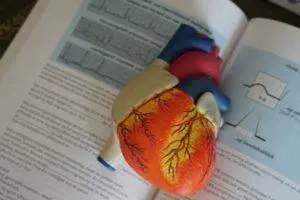
What is high blood pressure? Blood pressure (BP) is the force with which blood, pumped by the heart, pushes against the inner walls of the arteries and veins. When this force is consistently high, it puts a strain on the delicate tissues of the blood vessels and makes your heart work harder. This is also called hypertension. Most people take medications to control high blood pressure. In this article we’ll discuss how to manage high blood pressure with TCM and acupuncture.
High blood pressure is very common in older adults; about half of people over the age of 60 have high blood pressure. It is very important to have your doctor regularly monitor your blood pressure, because high blood pressure, if left untreated, can lead to heart disease, arrhythmia, heart attack, stroke, kidney disease, and many other serious, life-threatening conditions.
Your blood pressure reading is made up of two parts: systolic, which measures the force of blood being pumped away from the heart, and diastolic, the force of blood moving in between heart beats, when blood is flowing back into the heart. A normal blood pressure reading is usually considered 120/80 (systolic over diastolic). A consistent reading of BP over 130 would indicate hypertension stage 1, while a BP over 140 would be classified as hypertension stage 2. A BP over 180 signals a hypertensive crisis, and should be treated as an emergency, as it could lead to a stroke or other serious organ failure.
People with high blood pressure are advised to make lifestyle changes, including following a healthier diet, getting more exercise, and quitting smoking. Even a modest weight loss of ten pounds or so can make a big difference to reduce high blood pressure. Most people end up taking antihypertensive medications to lower blood pressure, often for the rest of their lives. Integrative care for high blood pressure that includes acupuncture treatment and herbal supplements according to TCM principles can provide natural remedies for high blood pressure, restoring the health of the circulatory system so that it might not be necessary to take drugs indefinitely.
Signs of High Blood Pressure
In many cases, there are no clear signs that a person has high blood pressure. Most people do not realize they have high blood pressure until it is measured by a medical professional. While people may think that a flushed, red face, or bouts of dizziness are symptoms of high blood pressure, these sorts of signals are not necessarily directly caused by high blood pressure. A flushed face caused by dilated blood vessels can happen for many reasons, usually because of a temporary rise in blood pressure due to heat, or cold weather, physical activity, spicy foods, hot drinks or alcohol, or a reaction to cosmetic skin products. Dizziness can actually be related to the side effects of medications prescribed for high blood pressure. The only way to know for sure is to check your blood pressure.
Many older people, especially women, with high blood pressure, experience bouts of dizziness that may be part of a hypertensive crisis – a sudden increase in blood pressure that can cause temporary dizziness or vertigo, tinnitus (ringing in the ears), or headache. A hypertensive emergency is sometimes the reason that a person visits a doctor to have a blood pressure check. It may be that hypertension has an effect on the peripheral auditory and vestibular systems, which can affect a person’s sense of equilibrium and orientation in space. High blood pressure can also contribute to problems with memory or cognitive function.
Top 10 Causes of High Blood Pressure
Many factors can lead to high blood pressure. Aging is one factor. If there is a family history of hypertension, you may be genetically predisposed to having high blood pressure, too. Other risk factors also increase the chances of high blood pressure:
- Smoking
- Diet high in salt and/or fat
- Lack of exercise, sedentary lifestyle
- Being overweight
- Stress
- Too much alcohol consumption
- Sleep apnea, snoring
- Thyroid and adrenal problems
- Kidney problems
- Diabetes
Medical diagnosis and treatment for high blood pressure don’t really focus on finding a root cause of the problem. General guidelines for eating less salt and fat, losing weight, and finding ways to reduce stress may help people reduce high blood pressure, but for most people, modest lifestyle modifications aren’t enough to solve the problem.
High Blood Pressure During Pregnancy
Some women develop high blood pressure during pregnancy. Called gestational hypertension, this occurs when a woman has elevated blood pressure during the last 20 weeks of pregnancy. While this type of high blood pressure usually goes away after birth, it can be an indicator of becoming hypertensive later in life. In some cases, having high blood pressure while pregnant can cause problems, such as fetal growth restriction, which may happen if not enough nutrients are being carried to the growing fetus through the blood vessels. If high blood pressure and high levels of protein in the urine are both detected, a woman may have preeclampsia, a serious problem that is believed to be caused by restricted blood flow to the placenta. Women with high blood pressure during pregnancy are more likely to experience preterm birth and to have unplanned delivery Caesarean section.
Conventional treatment for gestational hypertension typically involves monitoring and managing high blood pressure with medications. While not many clinical studies have been done regarding acupuncture treatment for gestational hypertension and preeclampsia, TCM has been used to treat high blood pressure and complications of pregnancy for thousands of years. From the TCM point of view, high blood pressure during pregnancy may be due to a deficiency of Liver and/or Kidney Yin, or rising Liver Yang energy in response to a Kidney Yin Deficiency, or Blood or Yin Deficiency. A TCM provider would use diagnostic methods to determine the differentiation and use acupuncture points to nourish the appropriate organs, promote better flow of Blood and Qi, and to help alleviate stress.
How to Control Blood Pressure with Acupuncture and TCM

Naturally, for many centuries, TCM practitioners had no way of measuring blood pressure with medical devices. They depended on observations of people’s symptoms, appearance, and careful checking of the pulse by hand. Thus, TCM does take into consideration the patient’s feelings and experience of symptoms of high blood pressure like:
- Dizziness or vertigo
- Palpitations
- Headache
- Fatigue
- Shortness of breath
- Weakness in the knees
- Memory loss
- Vision loss
TCM views dizziness as being a result of too much Liver Yang energy, stagnant Phlegm, Liver-Kidney deficiency, and deficiency or stagnation of Blood and Qi. Hypertension type headaches are caused by the addition of Fire energy coming from the stomach or intestine. Liver Fire can cause irritability and flushing in the face, while Heart Fire can cause chest distress, nervousness, and insomnia. Weakness and fatigue would be caused by the addition of Dampness and accumulated excess fluid. Fluid retention can lead to a distended abdomen, edema, and low back pain.
TCM philosophy also takes into consideration the emotional state as it relates to the physical health of the body. More recent scientific research also confirms that feelings of anger stimulate the sympathetic nervous system and contribute to high blood pressure and heart disease. Finding practices that help how to control anger and find calm are another important part of managing high blood pressure.
A TCM practitioner can treat all of these various symptoms with a combination of acupuncture treatment and herbal supplements individually customized for each patient’s specific circumstance.
One randomized study compared patients receiving acupuncture versus patients receiving sham acupuncture to treat hypertension over a six-week period. The patients who had real treatments showed significantly lower daytime and nighttime blood pressure readings. Another study showed that acupuncture treatment given to patients in conjunction with antihypertensive medications showed significant reduction in both systolic and diastolic BP readings.
As the results of this research study of many clinical trials concluded, regular acupuncture treatments have the effect of reducing blood pressure, with the effects lasting several days after each treatment. Acupuncture treatment generally has a cumulative effect, and it is necessary to stick with it to get results. It is also crucial that you work with your healthcare practitioner to determine which dietary changes and forms of exercise will best help how to reduce high blood pressure.
Acupuncture Near Me for High Blood Pressure
Managing high blood pressure takes commitment to making long-term lifestyle changes and regular monitoring. Adding acupuncture and TCM to your integrative care regimen may help you reduce high blood pressure, improve related problems like fatigue, dizziness, and headache, and avoid more serious health problems down the line.
*This article is for education from the perspective of Traditional Chinese Medicine only. The education provided by this article is not approved by FDA to diagnose, prevent, treat and cure human diseases. It should not stop you from consulting with your physician for your medical conditions. Traditional Chinese Medicine is based on Qi, which is an invisible force that usually cannot be observed by modern science. Because science focuses on testing ideas about the natural world with evidence obtained through observation, these aspects of acupuncture can’t be studied by science. Therefore acupuncture and Chinese herbs are often not supported by double-blind, randomized trials, and they are considered alternative medicine therapies in the United States.
How to Manage IBS Diet With Acupuncture and TCM
By Qineng Tan, L.Ac., Ph.D. & Xiaomei Cai, L.Ac., Ph.D.

What is irritable bowel syndrome (IBS)? IBS is a chronic gastrointestinal problem that causes uncomfortable changes in the body’s elimination process. One day you’re constipated, then a day or two later, you may have diarrhea. Pains move around the whole abdominal area, and your belly feels full and tight with excess gas. IBS treatment typically involves taking medications and following a special IBS diet, but many people continue suffering with no IBS cure. In this article, we’ll talk about how to get rid of IBS naturally with acupuncture and TCM.
IBS is a common digestive problem that can cause a lot of pain and anxiety around your daily bathroom habits. IBS can cause stress and even depression, compromising your ability to live life without worrying about when you’re going to have to go to the bathroom. Conversely, stress and anxiety function as triggers for bouts of IBS, so the problem becomes cyclical.
This gastrointestinal problem is called Irritable Bowel Syndrome because people who suffer from this disorder seem to have a more sensitive intestinal tract that is highly reactive to IBS triggers. Sometimes this condition is referred to as “spastic colon.” People who have primarily loose stools as a result of this condition are said to have “IBS-D” (diarrhea-predominant IBS), while people who suffer more from sluggish bowels have “IBS-C” (constipation-predominant IBS).
Many people never seek help from their medical providers for IBS treatment, perhaps because they think their discomfort is normal. The ever-changing nature of IBS means it’s hard to get a handle on what is actually happening. The pain in the gut seems to move around all the time, and bathroom habits can feel totally unpredictable. IBS can also lead to the bleeding and discomfort of hemorrhoids.
IBS Causes
According to conventional medicine, there is no one specific cause for Irritable Bowel Syndrome. Having a more highly reactive intestinal tract may be due to many factors, some more clearly mechanical in nature, others more having to do with psychological factors. Inflammation in the gut, gastroenteritis, stressful or traumatic situations, heightened sensitivity to movements and sensations within the abdomen, and miscommunications of the autonomic nervous system between the digestive organs and brain may all play a role in IBS.
We usually think of serotonin as being a hormone in the brain that affects mood and the ability to fall asleep. But serotonin is a neurotransmitter that also plays a key role in the function of the gut, affecting how the intestines move and secrete gastric juices, as well as how we viscerally perceive these functions. Changes or abnormalities in serotonin release or uptake seem to be one of the issues related to IBS.
Top 5 IBS Triggers are:
- Stress
- Abnormal levels of serotonin in the digestive tract
- An infection or abnormal level of bacteria in the digestive tract
- Strong reactions to certain foods/Celiac disease
- Weak colon muscle action
IBS involves, on some level, problems with both the motor function of the bowel itself and the extent to which a person is physically aware of “stuff going on” in their intestines and colon. Inflammation from infections or hormone changes caused by the menstrual cycle can also directly affect bowel motility. Those same things can cause a person to be hypersensitive to every little movement of the intestines, making them feel like painful cramps.
IBS and Gut Health
The balance of gut bacteria, or “flora” in the intestines, has been more recently shown to play a vital role in overall health. Gut bacteria are instrumental in the proper functioning of the immune system and the assimilation of nutrients from our food. The balance of the gut flora can be disturbed by taking antibiotics or a gastric infection, such as norovirus or other flu-type illnesses. Medical science is still making strides in learning how the health of the gut is very closely connected with the brain. It is becoming clear that gut health is inextricably related to mental health.
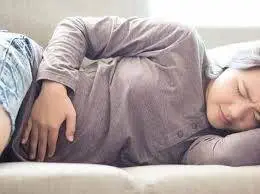
We know that stress, both chronic and acute, can cause all kinds of health issues. The mind-body connection is particularly apparent when it comes to IBS triggers. Feelings of anxiety create a ripple effect through the middle of the body, affecting the whole digestive system, causing pain and volatile action. Fear, shame, and even feelings of panic about having to run to the bathroom keep the whole process in a repeating loop.
IBS treatment often involves antibiotics or probiotics, but this has not been shown to be effective long-term. Many times doctors will prescribe medicines for anxiety (like Valium or Atavan) or depression to help provide IBS relief. However, these pharmacological treatments do not really address the root causes of the syndrome, and they may cause negative side effects, and sometimes create a dependency on the medication.
Top 5 Signs of IBS
A syndrome is a collection of symptoms that often appear together for which there is no clear medical explanation. According to conventional medicine, irritable bowel syndrome is evident when a person has frequent abdominal discomfort, which could mean a “stomach ache” or cramping, and bouts of constipation or diarrhea, or sometimes both, in alternation. In other words, IBS is signified by changes in the frequency or consistency of bowel movements, accompanied by marked discomfort before having them.
Top 5 Symptoms of IBS are:
- Abdominal pain
- Bloating and excess gas
- Constipation and/or diarrhea
- Mucus in the stool or other irregularities
- Nausea
IBS is more common among women than men. This may be due to fluctuations in hormones that affect the chemical balance and muscle action of the intestines. Women may experience more IBS symptoms in conjunction with their menstrual periods, or as a PMS symptom.
Conventional treatment for IBS typically involves the offering of various medications to deal with these symptoms. Anti-spasmodics may be used to help reduce cramping and contractions in the bowel, and anti-diarrheal medications such as Imodium may slow down the movements of the bowel, but these IBS medications do not help to restore true balance to the digestive system.
How to Treat IBS With Acupuncture
TCM and acupuncture work according to holistic principles, meaning that we are careful to look at the whole picture of what is going on with a person: emotionally, spiritually, physically, nutritionally, and energetically. According to TCM philosophy, the spleen is the organ responsible for processing our food and turning it into energy. IBS treatment with acupuncture is a matter of aligning the communications between the Shen (the mind) and the Spleen. Deficiency of the spleen is the primary TCM diagnosis for most patients with IBS symptoms. It is equally important to address problems of the Shen at the same time.
The most common TCM differentiations of IBS patterns are:
- Spleen Deficiency with Liver Qi stagnation: symptoms of this condition include diarrhea, mucus in the stool, abdominal pain, cramping, gassiness, bloating, irritability, and depression with lots of heavy sighing.
- Spleen Deficiency with Stomach deficiency: shows symptoms like watery stools, feeling of fullness and distension after eating, poor appetite, a pale complexion and fatigue.
- Spleen Deficiency with Kidney Deficiency: symptoms include diarrhea, especially in the morning, partially digested food in the stool, aches and pain in the abdomen, lower back, and knees, with a sense of coldness.
Moxibustion is a TCM treatment used in addition to acupuncture to treat IBS. One study showed that acupuncture treatment combined with moxibustion to get rid of IBS was extremely effective for reducing both the discomfort and frequency of bowel movements.
Another study that tested both herbal formulations and acupuncture treatment on patients with IBS showed that both methods were effective at reducing symptoms.
Acupuncture treatment will also focus on reducing stress, anxiety, and fatigue. Acupuncture has been shown to help restore the balance of serotonin levels, as well.
IBS Diet According to TCM
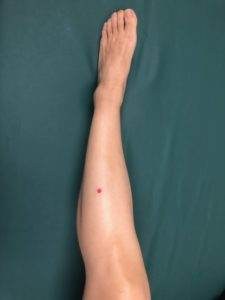
Chinese herbs, as always, are also integral to the successful treatment of IBS. In the TCM philosophy of healthcare, nutrition is considered to be just as important as acupuncture, moxibustion, herbal formulae, and other forms of therapeutic treatment. Herbs are a way to get nutrients into the body that are not necessarily present in the foods we commonly eat. TCM practitioners are trained extensively in the energetic and nutritional values of food and will spend time working with patients to modify eating habits and focus on a special IBS diet. Apart from reducing common problems like excessive coffee and alcohol intake, your acupuncturist will work with you to discover which foods act as IBS triggers for you and help you to make the most beneficial modifications to your IBS diet plan.
Top 5 Acupressure Points to Help IBS
Acupressure can be a very effective means how to treat IBS naturally yourself. Acupressure uses the same collection of points located along the meridians of the body as acupuncture to help eliminate blockages and encourage blood and Qi to move freely through the body. These points located along the spleen, bladder, stomach and “conception vessel” meridians can help provide IBS relief. The conception vessel meridian runs up the front and center of the torso, from the pubic area to the mouth. Also known as the “Sea of Yin,” this channel is instrumental in directing all the yin energy in the body. As it is very exposed, this energy center can feel vulnerable, and may be where we tighten up, hunch over, and try to hide and protect ourselves. Tension along this channel can be a major energetic factor in the cramping and spasming actions of IBS.
Try these top 5 acupressure point for IBS relief:
- CV6 – located two finger-widths beneath the navel, gently rubbing this point with circular motions helps to relieve belly pain, cramping,

Spleen 4 acupressure point and constipation.
- CV12 – located at the midpoint between the lower end of the sternum and the navel, rubbing this point in a circular motion can help relieve gas pain, bloating and acid reflux.
- SP4 – located on the inner edge of the foot, right above where the arch begins, stimulating this spleen point can help relieve gastric spasms and diarrhea.
- UB25 – these two points in the lower back, right beneath LV-4, can help relieve abdominal distension, constipation, and lower back pain.
- ST37 – also known as the “Upper Great Hollow,” these points are located along the outside edges of the shin bones, a few inches below the knees. Pressing firmly here can help relieve abdominal pain, constipation and diarrhea.
Acupuncture Near Me for How to Solve IBS
If the IBS signs described here sound familiar because you or someone you know has been suffering from frequent abdominal discomfort and constipation or diarrhea, or both, it is important to seek help and advice from your healthcare providers. When conventional IBS treatment doesn’t seem to be helping, acupuncture and TCM may help you find IBS relief. Call us at Art of Wellness to get started with an IBS diet plan and course of acupuncture treatment.
*This article is for education from the perspective of Traditional Chinese Medicine only. The education provided by this article is not approved by FDA to diagnose, prevent, treat and cure human diseases. It should not stop you from consulting with your physician for your medical conditions. Traditional Chinese Medicine is based on Qi, which is an invisible force that usually cannot be observed by modern science. Because science focuses on testing ideas about the natural world with evidence obtained through observation, these aspects of acupuncture can’t be studied by science. Therefore acupuncture and Chinese herbs are often not supported by double-blind, randomized trials, and they are considered alternative medicine therapies in the United States.
